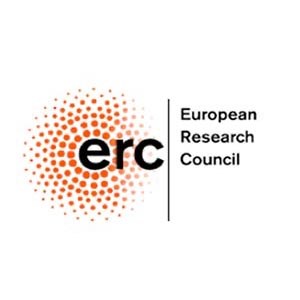Contact
caroline.grabbe@slu.se, +46 (0)90 786 8389, +46 (0)72 236 56 70
marianne.gillion@slu.se, +46 (0)76 513 40 38

The European Research Council (ERC) is the most prestigious funder of excellent research in Europe, with the mission of promoting the best researchers and most brilliant ideas. Together with Marie Skłodowska Curie actions and Research infrastructures, ERC forms the foundation of Excellent Science funding within EU framework programmes (Pillar 1).
Depending on career stage, researchers can apply for individual funding from ERC in the categories Starting, Consolidator, and Advanced Grants, as well as collaborative ERC Synergy grants where 2-4 researchers from different disciplines join forces to tackle a coherent and challenging research question. ERC funds investigator-driven bottom-up research, which is evaluated based on the quality of the idea and the merits of the researcher. Projects funded by ERC are normally basic-research oriented, with a strong potential of resulting in break-through discoveries that move the frontiers of science.
There are no pre-set priorities within ERC, instead the proposals are evaluated in 27 different thematic review panels, divided into three major research areas;
The generous funding provided by the ERC allows grantees to build or expand their research team, conduct excellent research and establish/consolidate/strengthen their position as research leaders in Europe.
ERC funds individual researchers, as well as small groups of researchers forming interdisciplinary teams, with grants in the following categories;
In addition to the grant levels indicated above, all applicants of ERC frontier grants can also apply for additional funding of up to €1 million for the individual grants and €4 million for ERC-SyG, to cover costs including;
Similar to other grants within the Horizon 2020 framework programme, ERC provides a flat rate of 25% for indirect costs. Depending on the project design and budget, there may thus be a smaller or larger need for co-funding of ERC grants. At present, ERC is a prioritised funder at SLU, and hence, grants awarded by the ERC are centrally co-funded by the university. For further details, please see the current guidelines for co-funding here.
Calls for ERC grants are published on the European Commission’s Funding and Tenders portal, roughly four months before deadline. You can find detailed instructions for how to structure an ERC proposal in the annual ERC Work Programme, as well as in the associated “Information for applicants” guidelines, which can be downloaded from the ERC website.
In short, an ERC proposal consist of three parts;
ERC proposals are normally evaluated in two stages (three stages for ERC-SyG), during which the B1 is evaluated in stage one and B2 in stage two. In the final stage of evaluation, researchers that reach stage 2 are also invited for an interview in Brussels.
If you are curious about ERC or plan to write an application, you are welcome to contact Grants Office for general advice, as well as receive hands-on support in the application process. Either contact one of the research coordinators directly or mail us at grantsoffice@slu.se.
Researchers with a Swedish host institution who have applied for an ERC Starting Grant and received an “A” rating, but missed out on funding due to limited budget, can apply for a Swedish Foundations’ Starting Grant. The grant is awarded for one year at a time and is guaranteed for up to five years; grantees are expected to continue to participate in applicable ERC calls when possible throughout the grant period. For more information, visit their website.
caroline.grabbe@slu.se, +46 (0)90 786 8389, +46 (0)72 236 56 70
marianne.gillion@slu.se, +46 (0)76 513 40 38